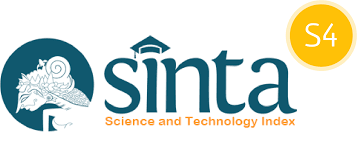Pertimbangan Hakim Terkait Penolakan Permohonan Poligami
DOI:
https://doi.org/10.18196/mls.v4i1.17333Keywords:
polygamous marriages, religious court decisions, sirri marriagesAbstract
In order to obtain a permit for a polygamous marriage that is legal in the eyes of the state, a husband must apply for polygamy to the Religious Courts in his area and must meet the requirements set forth in the Marriage Law Articles 4 and 5. However, in practice, polygamous marriages are preceded by sirri marriages first. The purpose of this study is to present the basis for the judge's considerations in rejecting the decision on the licensing of polygamy which was preceded by sirri marriage at the Bantul Religious Court and the legal consequences that occurred to the second wife, joint assets, and children born as a result of refusing permission to polygamy. This type of research is normative research with data collection techniques using literature and interviews with informants. The source person was Dra H. Nafilah S.H M.H. The judge who decided this case at the Bantul Religious Court. The analysis technique uses qualitative data with descriptive methods. Based on the results of the study, it can be concluded that the Judge's considerations in rejecting the application for a polygamy permit are in accordance with Articles 4 and 5 of the Marriage Law, Al-Quran Surah An-Nisa verse 3, and the Book of Fiqh, which in essence the Petitioner does not meet the alternative and cumulative requirements if do itsbat marriage, the application will still be rejected in accordance with the provisions of SEMA Number 03 of 2018. The legal consequences of refusing the permit for polygamy for the second wife are that they do not receive an inheritance if their husband dies and they do not receive joint assets if they divorce
References
Buku
Abdurrahman. 1995. Kompilasi Hukum Islam di Indonesia. Jakarta: Akademika Pressindo.
Labib MZ. 1986. Pembelaan Umat Muhammad. Surabaya: Bintang Pelajar.
M. Sujari Dahlan. 1996. Fenomena Nikah Siri ( Bagaimana Kedudukannya Menurut Agama Islam). Surabaya: Pustaka Progressif.
Mohammad Ali. 2022. Hukum Islam dan Peradilan Agama, Jakarta: PT Rajagrafindo Persada.
Muhammad Anshary. 2014. Kedudukan Anak Dalam Perspektif Hukum Islam dan Hukum Nasional. Bandung: CV Mandar Maju.
Mukti, F & Yulianto, A. 2015. Dualisme Penelitian Hukum Normatif & empiris. Yogyakarta: Pustaka Pelajar.
Peter Mahmud Marzuki. 2005. Penelitian Hukum (Edisi Revisi). Jakarta: Kencana Prenada Media Group.
R.Subekti. 1984. Kitab Undang-undang hukum perdata dengan Tambahan Undang-Undang Pokok Agraria dan Undang-undang Perkawinan. Jakarta: Pradnya.
Riduan Syahrani. 1986. Perkawinan Dan Perceraian Bagi Pegawai Negeri Sipil. Jakarta: PT. Media Sarana Press.
Sayyid Quthb. 2010. Tafsir Fi Zhilalil Quran Di Bawah Naungan A-Quran. Jakarta: Gema Insani.
Jurnal
AA Savitry. (2018). Analisis Kasus Permohonan Poligami Yang Didahului Nikah Sirri Berdasarkan Hukum Perkawinan Di Indonesia (Studi Kasus Putusan No. 840/Pdt.G/2015/PA.SKA). Jurnal.uns.ac.id, 1(6).
Abdurrahman Abubakar Bahmid. (2022). Problematika Hukum dalam Perkara Pengesahan Nikah Poligami Sirri. Jurnal IAIN Sultan Amai Gorontalo, 6(1).
Adriani Adnani. (2021). Akibat-akibat Hukum dari Peristiwa Perkawinan Sirri. Jurnal Ilmiah Hukum, 9(2).
Dewi Anggraeni Wijayanti. (2021). Pernikahan Poligami Tanpa Izin Pengadilan Agama dan Pengaruhnya Terhadap Kehidupan Rumah Tangga. Jurnal Institut Agama Islam Negeri Pekalongan, 1(1).
Dwi Sulistiyo Rini. (2020). Penolakan Permohonan Izin Poligami di Pengadilan Agama Kabupaten Malang. Jurnal hukum UIN, 1(6).
Juliana Pretty Sanger. (2015). Akibat Hukum Yang Sah Di Dasarkan Pada pasal 2 undangundang Nomor 1 Tahun 1974 Tentang Perkawinan, Jurnal Lex Administratum, 3(6).
Khoirul Hidayah. (2008). Dualisme Hukum Perkawinan di Indonesia (Analisis Sosiologi Hukum Terhadap Praktik Nikah Sirri). Jurnal Perspektif Hukum Universitas Hang Tuah Surabaya, 8(1).
M. Yazid Fathoni. (2018). Kedudukan Pernikahan Poligami Secara Sirri Ditinjau Dari Hukum Keluarga. Jurnal IUS Kajian Hukum dan Keadilan, 6(1).
Mukhtarruddin Bahrum. (2019). Problematika Isbat Nikah Poligami Sirri. Jurnal Hukum Dan Politik Islam, 4(2).
Ratu mawar karlina. (2019). Akibat Hukum Terhadap Harta Kekayaan Yang Ditimbulkan Dari Perkawinan Sirri Menurut Kompilasi Hukum Islam. Jurnal.Syntax-indea, 1(6).
Rifqi, Muhammad Mualimar. (2019).Keadilan Dalam Poligami Perspektif Madzhab Syafi’I. Jurnal Himatnya, 1(2).
Siti Asiyah. (2019). Konsep Poligami Dalam Al-Quran: Studi Tafsir Al-Misbah Karya M.Quraish Shihab. Jurnal IAIM NU Metro Lampung, 4(1).
Regulasi
Undang-undang Nomor 1 Tahun 1974 tentang Perkawinan.
Peraturan Pemerintah Nomor 9 Tahun 1975 tentang Pelaksanaan Undangundang Nomor 1 Tahun 1972 tentang Perkawinan.
Instruksi Presiden Nomor 1 Tahun 1991 tentang Kompilasi Hukum Islam.
Website
Direktori Putusan Mahkamah Agung. (2021). Putusan Nomor 535/Pdt.G/2021/PA.Btl. Diakses pada hari Jumat 2 Februari 2022 pada pukul 12.00 WIB, https://putusan3.mahkamahagung.go.id/direktori/putusan/zaebf9b6663ae6e4ac51313533383535.html.
Sarwo Edy. (2022). Mencegah Mudharat (bahaya) Lebih diutamahan dibanding mendapatkan menfaat. Diakses pada hari jumat 4 Maret 2022 pada pukul 12.00 WIIB, https://Klikbumi.com.
Downloads
Published
Issue
Section
License
Copyright
Authors who publish papers in this journal agree to the following terms:
Authors retain copyright. Authors are permitted to copy and redistribute the journal's published version of the work non-commercially (e.g., post it to an institutional repository or publish it in a book)
Authors are permitted and encouraged to post their work online (e.g., in institutional repositories or on their website) prior to and during the submission process, as it can lead to productive exchanges, as well as earlier and greater citation of published work (See The Effect of Open Access).
This journal is using Attribution-NonCommercial-ShareAlike 4.0 International. You are free to:
- Share — copy and redistribute the material in any medium or format
- Adapt — remix, transform, and build upon the material
The licensor cannot revoke these freedoms as long as you follow the license terms, which include the following:
- Attribution — You must give appropriate credit, provide a link to the license, and indicate if changes were made. You may do so in any reasonable manner, but not in any way that suggests the licensor endorses you or your use.
- NonCommercial — You may not use the material for commercial purposes.
- ShareAlike — If you remix, transform, or build upon the material, you must distribute your contributions under the same license as the original.
- No additional restrictions — You may not apply legal terms or technological measures that legally restrict others from doing anything the license permits.
Creative Commons Attribution-NonCommercial-ShareAlike (CC BY-NC-SA)

This work is licensed under a Creative Commons Attribution-NonCommercial-ShareAlike 4.0 International License.



